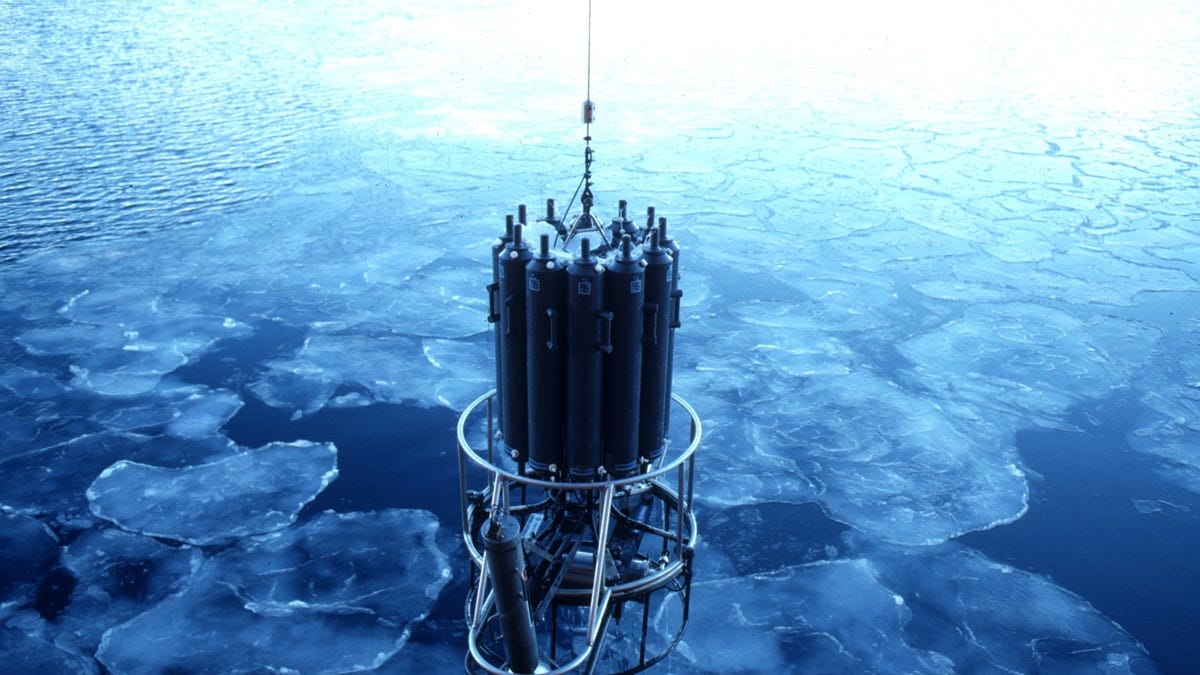CSIRO climate science divisions on the line in the face of cuts
Up to 350 positions within the CSIRO's climate science research institutions will be lost to new job cuts.
The beleaguered Commonwealth Scientific and Industrial Research Organisation is set to lose up to 350 positions from its Oceans and Atmosphere and Land and Water divisions in a move Australian scientists are calling "appalling" and "deeply disturbing."
While the CSIRO will be attempting to relocate as many jobs as possible into other divisions, the cuts will effectively see the organisation's climate science divisions, already struggling under budget cuts, further stressed.
According to the ABC, the organisation's will take a new climate change focus: How to adapt to it, rather than measuring it.
"It's inevitable that people who are gifted at measuring and modelling climate may not be the same people who are gifted at figuring out what to do about it how to mitigate it," said CSIRO chief executive Larry Marshall.
"Some of the climate scientists will be able to make that transition and some won't."
In an email to staff obtained by the Sydney Morning Herald, he added, "CSIRO pioneered climate research, the same way we saved the cotton and wool industries for our nation. But we cannot rest on our laurels as that is the path to mediocrity. Our climate models are among the best in the world and our measurements honed those models to prove global climate change. That question has been answered, and the new question is what do we do about it, and how can we find solutions for the climate we will be living with?"
Meanwhile, a spokesperson for science minister Christopher Pyne told the ABC and the Sydney Morning Herald that the changes were not due to the government, but were an internal "operational decision" to reorganise taken after an extensive review into how it could better fulfil its mission.
In Senate Proceedings today, Attorney-General George Brandis, speaking for prime minister Malcolm Turnbull, elaborated in response to a query by Greens senator Larissa Waters.
"The realignment, which will take roughly two years, will result in no net job losses. There will be no net job losses across the agency, and any such suggestion is incorrect," he said.
"CSIRO has announced that there will be realignment of activity within their climate change division. Stories reported in the media today, particularly in the Fairfax media, are factually wrong. The CSIRO will continue its relationship with the Department of the Environment on the national environmental science program. It will be spending AU$83 million per annum on climate change research, and the Oceans and Atmosphere division will continue to employ more than 300 people."
However, in November of last year, just before the global climate summit in Paris, climate science divisions were told they either had to find their own funding or prepare for job cuts.
The news has left Australia's scientific community reeling.
"I am stunned by reports that CSIRO management no longer thinks measuring and understanding climate change is important, innovative or impactful. Paris did not determine whether or not climate change is happening, scientists who generate and study big data did," said Penny Sackett, Adjunct Professor at the Climate Change Institute, Australian National University and a former Australian Chief Scientist.
"The big question now, which underlies all climate adaptation work, is 'How is the climate changing?' That answer will once again be determined by those scientists who gather climate data and model it. How can it be that our largest national research organisation chooses not to engage, indeed not to lead, the effort in finding the answer to that question?"
The CSIRO has already been struggling. Since the Coalition came to power in 2013, the organisation has lost an estimated 1,400 jobs, and its budget was cut by $111 million in 2014. This seemed to have turned a corner with the Turnbull government National Innovation and Science Agenda in December last year, committing $90 million to improving the commercialisation of research, and $75 million to cybersecurity and robotics.
Australia's climate research, however, is invaluable.
"The latest round of job cuts from CSIRO is nothing short of appalling. The climate research work conducted by CSIRO has been pioneering and of global standard," said UNSW Climate Change Research Centre DECRA research fellow Sarah Perkins-Kirkpatrick. "If we want to properly safeguard our country from climate change, we require ongoing fundamental climate research -- we cannot create innovative and effective solutions towards climate change without it."
"This is deeply disturbing news. The impacts of climate change are already being felt around Australia at an increasing rate, and there is more to come," Emeritus Professor at ANU and a Climate Councillor at the Climate Council of Australia Will Steffen added.
"CSIRO is Australia's premier research organisation in terms of fundamental climate science, and has built a well-deserved international reputation for world-class science that has contributed much to global understanding of climate change. It takes decades of hard work by dedicated scientists to build up such a reputation. It can be destroyed overnight by senseless actions by those in power. Very regrettably, this seems to be happening."


